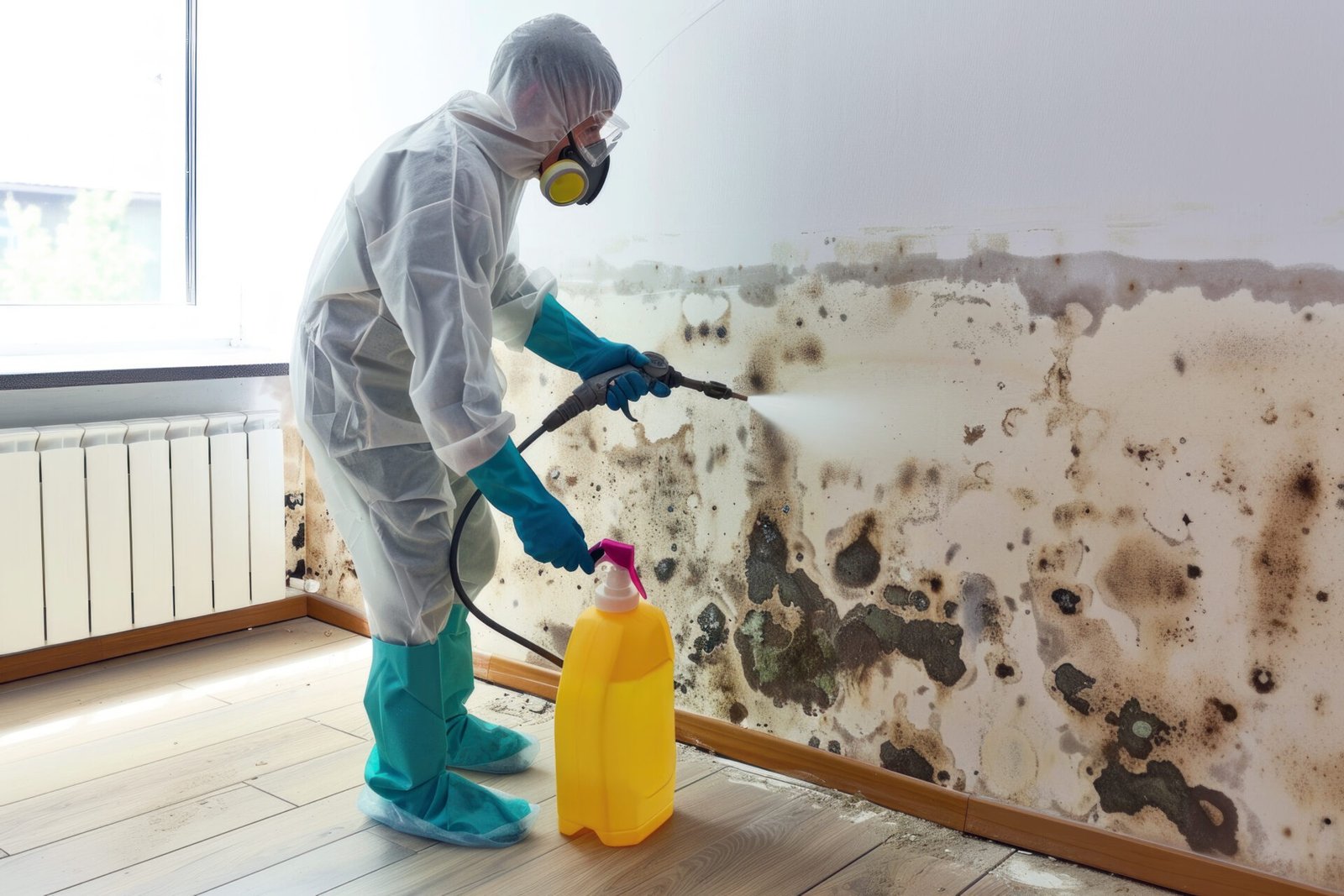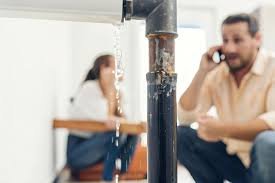Mold lurks in hidden corners of homes, thriving in Florida’s humid climate and turning a minor nuisance into a serious health threat. For families, exposure to mold can trigger allergies, respiratory issues, and chronic illnesses that mimic common colds or fatigue. At EPR LLC, we’ve seen countless cases where undetected mold silently affects daily life, from children’s asthma flare-ups to adults’ unexplained headaches.
As certified environmental consultants in South Florida, we specialize in mold assessments and remediation, helping families identify and eliminate risks. This guide empowers you to recognize if mold is making your family sick, understand the health implications, and take decisive action. With our expertise rooted in EPA guidelines and Florida health standards, we’ll walk you through the signs, detection, and solutions to restore your home’s safety.

Mold isn’t just unsightly—it’s a potential invisible enemy. Spores from common household molds like Stachybotrys (black mold) or Aspergillus release allergens and toxins that irritate airways and weaken immune systems. In humid areas like South Florida, where moisture from rain or AC units creates perfect breeding grounds, mold can spread quickly behind walls or under carpets. Families with young children, elderly members, or those with pre-existing conditions face heightened risks. EPR LLC conducts thorough inspections using advanced tools like thermal imaging and air sampling, ensuring accurate diagnosis. If you suspect mold, don’t wait—early intervention prevents escalation. Contact us at (754) 221-6945 or info@eprllc.net for a professional assessment that protects your loved ones.
Common Signs of Mold-Related Illness
Mold exposure often masquerades as everyday ailments, delaying diagnosis and allowing problems to worsen. Families might dismiss symptoms as seasonal allergies or stress, but persistent issues signal a deeper cause. Watch for these telltale signs that mold could be the culprit.
Respiratory problems top the list. Frequent coughing, wheezing, or shortness of breath, especially in damp areas like bathrooms or basements, often points to mold. Children may develop chronic sinus infections or earaches, while adults experience persistent throat irritation. These symptoms arise from inhaling mold spores, which inflame airways and trigger asthma attacks in sensitive individuals. If over-the-counter remedies fail and symptoms recur in specific rooms, mold exposure is likely. EPR LLC’s air quality testing confirms spore levels, guiding targeted remediation to alleviate health burdens.
Skin and eye irritation follows closely. Itchy, red eyes, rashes, or hives that flare up indoors suggest mold allergens at work. Babies might develop eczema patches, and toddlers could scratch constantly without relief. These reactions occur when mold spores contact skin or mucous membranes, causing inflammation. In Florida’s humid homes, where AC units harbor moisture, symptoms intensify during rainy seasons. Our team at EPR LLC identifies hidden mold sources, like behind drywall, and removes them safely, restoring clear skin and comfortable breathing.
Fatigue and cognitive fog round out common indicators. Unexplained tiredness, headaches, or difficulty concentrating can stem from mycotoxins—toxic compounds produced by certain molds. Families report “brain fog” or sleep disturbances, often linked to nighttime exposure in bedrooms. Children might struggle with focus at school, while parents feel drained despite rest. These neurological effects, backed by CDC studies on mold’s impact, underscore the need for swift action. EPR LLC’s comprehensive assessments pinpoint contamination, and our remediation follows IICRC standards to eliminate toxins and improve family well-being.
Digestive upset and immune suppression complete the picture. Nausea, diarrhea, or frequent illnesses signal mold’s systemic effects. Mold weakens immunity, making families prone to colds or infections. If symptoms cluster after moving into a new home or during wet weather, mold is a prime suspect. EPR LLC educates clients on these connections, using lab-tested samples to confirm mold types and their health risks, ensuring informed, effective solutions.
Types of Mold and Their Health Risks
Not all molds pose equal threats, but understanding common types helps families gauge urgency. Black mold (Stachybotrys chartarum), often found in water-damaged areas, releases mycotoxins linked to severe respiratory issues and neurological symptoms. Its slimy, dark appearance signals high risk, especially for children and the elderly. Aspergillus, a greenish mold in AC ducts, causes allergic reactions and lung infections in vulnerable individuals. Penicillium, fuzzy and blue-green, triggers asthma and sinus problems, thriving in damp carpets.
Alternaria, outdoor mold that infiltrates homes via windows, exacerbates allergies with itchy eyes and sneezing. Cladosporium, black or green spots on walls, leads to skin rashes and fatigue. Each type varies in toxicity, but all warrant professional evaluation. EPR LLC classifies molds through microscopic analysis, aligning remediation with CDC and EPA recommendations. This precision prevents misdiagnosis and ensures complete removal, safeguarding your family’s health.
Health risks escalate with exposure duration. Short-term effects include irritation and allergies, but chronic exposure causes long-term issues like asthma development or cognitive impairment. Pregnant women and infants face heightened vulnerabilities, with studies from the American Lung Association linking mold to low birth weights. EPR LLC’s expertise minimizes these risks, providing families with safe, mold-free environments through certified remediation.
How to Detect Mold in Your Home
Spotting mold requires vigilance, as it often hides in unseen areas. Start with visual checks in high-moisture zones: bathrooms, kitchens, attics, and basements. Look for black, green, or white patches on walls, ceilings, or grout. Discoloration or bubbling paint indicates trapped moisture feeding mold growth. In Florida’s climate, check AC units and crawl spaces, where humidity fosters hidden colonies.
Odors provide another clue. A musty, earthy smell persists in affected areas, even after cleaning. HVAC systems circulate mold spores, spreading the scent throughout your home. If air feels stale or family members cough more indoors, mold may lurk in ducts. EPR LLC’s thermal imaging detects temperature differences signaling moisture behind surfaces, revealing concealed mold.
Humidity levels offer a proactive measure. Use a hygrometer to monitor indoor humidity; levels above 60% promote mold. Condensation on windows or pipes signals excess moisture. Air sampling kits or professional tests confirm spore counts. EPR LLC’s assessments use EPA-approved methods, providing lab results that guide remediation and prevent recurrence.
What to Do If You Suspect Mold
Suspected mold demands immediate action to protect health and property. First, isolate the area. Seal off rooms with plastic sheeting and turn off HVAC to prevent spore spread. Increase ventilation with fans, but avoid disturbing mold to minimize airborne particles. Document the issue with photos for insurance or legal purposes.
Next, address the source. Fix leaks, improve drainage, or use dehumidifiers to reduce moisture. Never attempt DIY removal for large areas—scrubbing releases spores. Small patches under 10 square feet can be cleaned with detergent and water, but wear PPE (personal protective equipment). For extensive growth, call professionals like EPR LLC.
Seek medical advice if symptoms persist. Doctors can test for mold allergies or infections. EPR LLC coordinates with health experts, ensuring holistic solutions. Our remediation follows IICRC S520 standards, containing, removing, and verifying mold-free conditions.
Why Professional Help Matters
DIY efforts often fail, spreading spores or missing hidden growth. Professionals like EPR LLC use HEPA vacuums, negative air machines, and antimicrobial treatments for thorough removal. We identify root causes, like plumbing leaks or poor insulation, preventing regrowth. Our services comply with Florida building codes, ensuring safe, legal remediation.
Professional intervention saves money long-term. Untreated mold costs $1,000–$5,000 to remediate later, versus $500–$2,000 early. EPR LLC’s insurance partnerships streamline claims, reducing out-of-pocket expenses. Our 98% client satisfaction rate, from Facebook, reflects our reliable, compassionate service.
Prevention Tips for a Mold-Free Home
Prevent mold with proactive habits. Maintain humidity below 50% using dehumidifiers or AC. Fix leaks within 24 hours and ensure proper ventilation in kitchens and bathrooms. Clean gutters regularly to divert rainwater. Use exhaust fans during showers and cooking.
Inspect attics and crawl spaces annually for moisture. Seal cracks in foundations or walls to block entry. Choose mold-resistant paints and materials for renovations. Educate family on spotting early signs, like water stains. EPR LLC offers preventive audits, identifying risks before they become problems.
Frequently Asked Questions (FAQs)
What are the first signs mold is affecting my family? Respiratory issues, skin irritation, fatigue, or digestive problems that worsen indoors signal mold exposure. Persistent symptoms in damp areas warrant professional testing.
How does mold spread in Florida homes? Humidity from rain or AC units fosters growth. Spores travel through HVAC systems, spreading to distant rooms if not contained.
Can I remove mold myself? Small areas under 10 square feet can be cleaned with detergent, but larger growth requires professionals to avoid spore release and health risks.
How long does mold remediation take? EPR LLC completes most residential jobs in 3–5 days, depending on extent. We minimize disruption with contained processes.
Does insurance cover mold removal? Many policies cover mold from sudden events like pipe bursts, but not neglect. EPR LLC provides documentation to support claims.
How do I prevent mold in humid Florida? Keep humidity below 50%, fix leaks promptly, ventilate well, and schedule EPR LLC audits for early detection.
Get Started with EPR LLC
Suspect mold is making your family sick? EPR LLC offers expert assessments and remediation to restore safety. Call (754) 221-6945 or email info@eprllc.net for a free consultation. Visit EPR LLC to learn more, or follow us on Facebook for health tips and success stories.
Conclusion
Mold’s subtle symptoms—respiratory woes, skin irritation, fatigue—can silently harm your family’s health. Early detection through visual checks, odors, and professional testing saves lives and property. EPR LLC’s certified remediation eliminates mold safely, addressing root causes for lasting protection. With Florida-specific expertise and EPA-compliant methods, we’re your trusted partner. Contact us at (754) 221-6945 or info@eprllc.net to breathe easier today.




